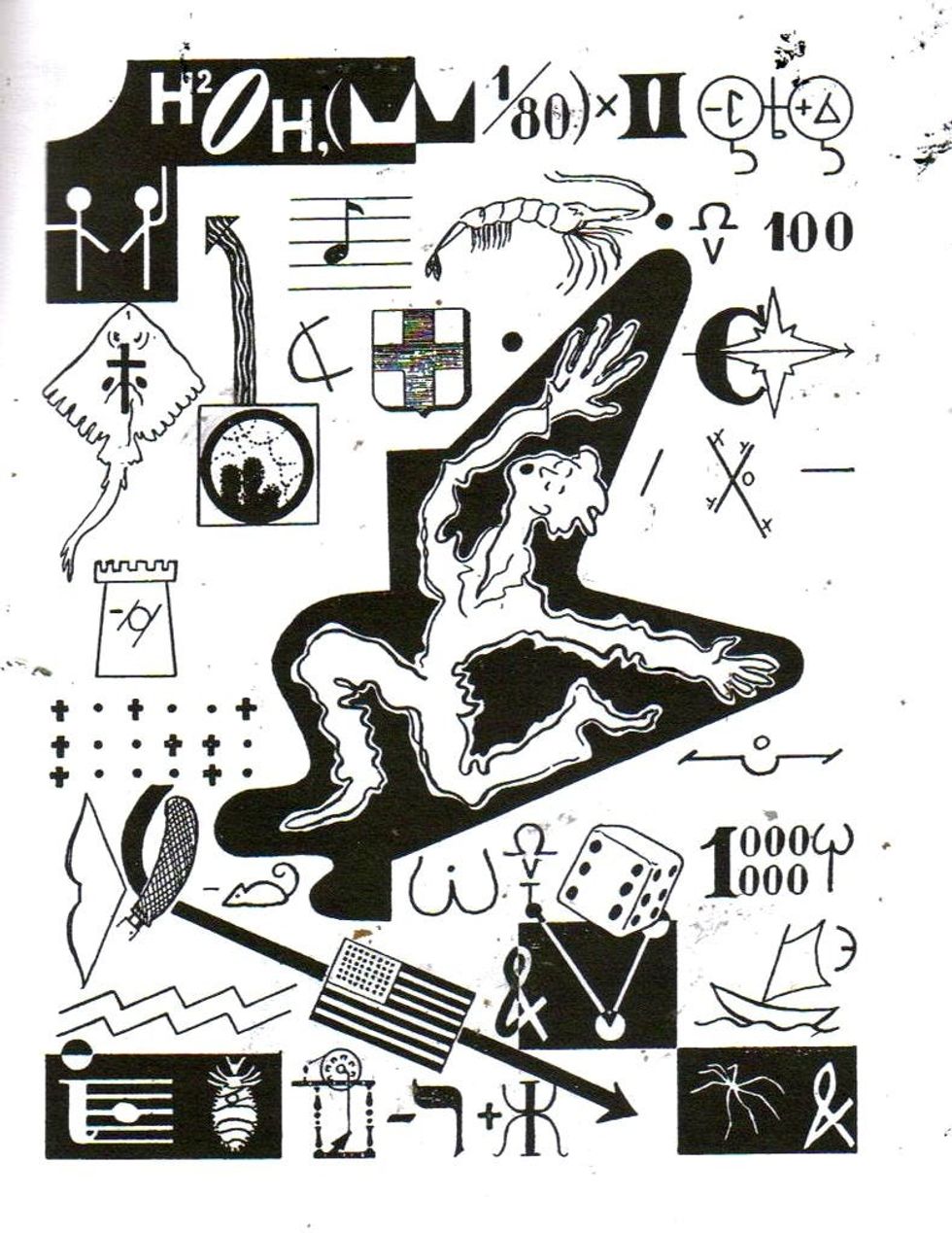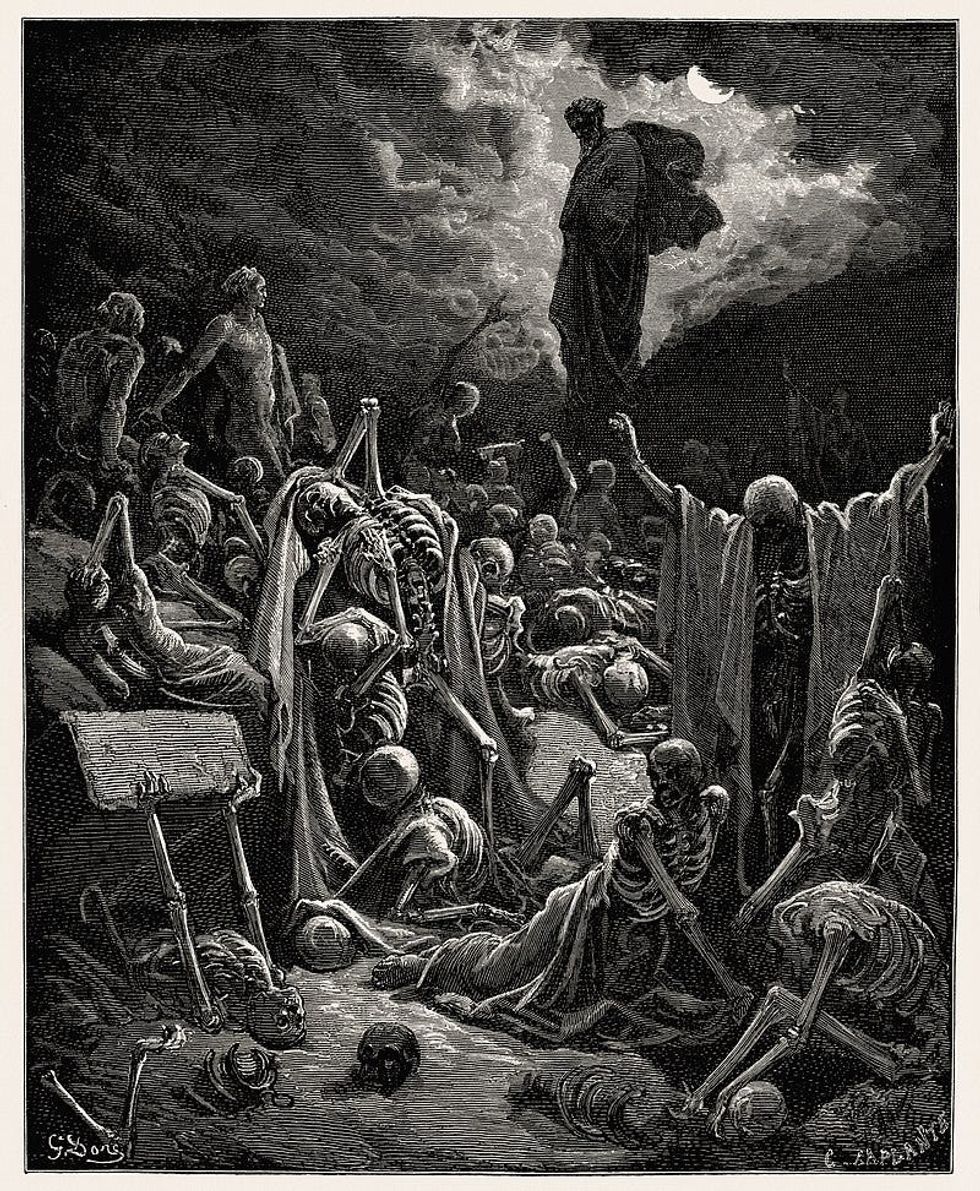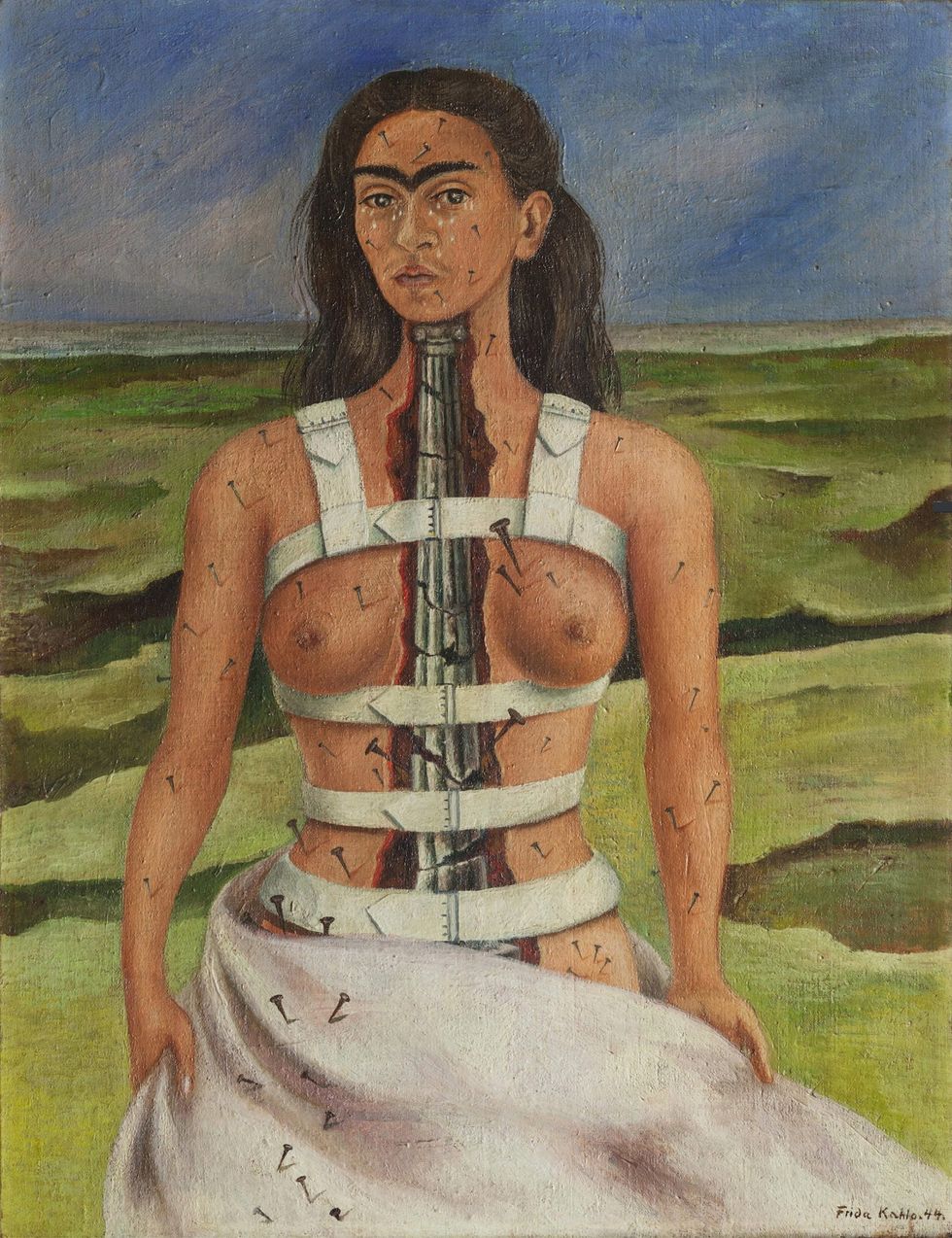When the dismal, life-defying ways of humankind (embodied by the aforementioned tech billionaire grifter) cause life to seem unbearable to my sight, I’m compelled to turn my grief-darkened vision inward; therein, I am, in moments of grace, greeted by a type of internal dawn. The first light of inner day touches my mind. The warmth of its touch stays with me as night winds howl, the ignorant gibber and rage, and foul men ascend to power.
“I can’t go on. I’ll go on.”―Samuel Beckett, The Unnamable
How does authoritarian rule come to be? First and foremost, because the mark has been swindled out of the ability to endure the incomprehensible—thus to endure the anxiety inherent to freedom.
There are moments, despair-pummeling hours during long, rest-deprived nights that I, pressed down by the crush of events, feel as though I simply can’t go on. Held in the thrall of grief, I cannot manage to write another word. Yet I continue to, word by word, sentence by sentence. Somehow I bear up. It remains a mystery as to how. I suspect, if I had to speculate as to the reason, the mystery in itself is exhilarating.
The rude rifting delivered by an insult comic, ridiculing vanity and human folly, is, most likely, less offensive to God (or even human sensibility) than religious fundamentalists praying for the end of the world or tech bros insisting they will deliver us to a “posthuman” paradise, wherein the serpent is empathy.
The world does not need a savior to die—or become transhuman—for our sins. At every sunrise, inner or extant, rebirth is possible.
Before we can access our humanity, we must first genuflect before the grandeur of earthworm and galaxy. From my empathy-ridden perspective sin is committed by refusing to notice the terrible beauty of it all and allow the worst among us to do all the talking and claim the world as their entitlement. A voice resounds within me: Defy the lie; resist soullessness. Because we are mortal human beings, defeat will come—but choose to be wounded by beauty.
 Peter Paul Rubens, "Saint Sebastian Tended by Two Angels" (c. 1630)
Peter Paul Rubens, "Saint Sebastian Tended by Two Angels" (c. 1630)
Only when I admit life is incomprehensible can I discern the cretinous lies passed off as truths by those who seek to gain power. Under the perpetual and pummeling uncertainty of a capitalist system, the contrived confidence of grifters will hold those who crave certainty in the thrall of tales promising false hope. Removal of dangerous outsiders is a time-tested go-to of the ruthless. Thus the mark has been provided with provisional relief from anxiety, as, all the while, relieved of his money; and from the realm of political grifters, eventually, freedom of choice.
How does authoritarian rule come to be? First and foremost, because the mark has been swindled out of the ability to endure the incomprehensible—thus to endure the anxiety inherent to freedom. Hence, the calling of writers is to ask uncomfortable questions. Demagogues and grifters claim they have solutions. They have cures for all ills at hand, they lie. They will bring deliverance from troubles. Don’t question them; just fall in and be swept along in the parade of true believers.
 Gabriel Pomerande, from "Saint Ghetto of the Loans" (1950)
Gabriel Pomerande, from "Saint Ghetto of the Loans" (1950)
Enveloped, as we are, within the present media simulacrum and building AI panopticon, a landscape of lies extends to the ends of the mind. Events, terrible in nature, unfold with the illusion of weightlessness as everything seems to be giving way and flying apart. A center made of nothing cannot hold.
Empathy is crucial as a centering principle. Set yourself in the direction of liberation by defending the dignity of the unfairly shunned. Freedom can be gained by resistance to falling into authoritarianism’s manic, joyless parade of mass conformity; many join authoritarian movements to relieve the anxiety inherent to uncertainty and the elation—albeit illusionary—experienced by (shallow in nature) acceptance within the mass.
In a just world, those deserving of shunning are the power seeking types of shitheels who attempt to gain authority by retailing in hatred and fear. Demagogues, inherently devoid of empathy, inflict division. In soul-making contrast, resisting their lies can serve to unite those possessed of viable hearts and dreaming souls..
Where words leave off, music begins. Poetry, the closest a verbal form can come to music insofar as revealing visions not perceptible to the temporal-locked mind. See if you recognize this Bronze Age classic:
I will search for my lost ones who strayed away, and I will bring them safely home again. I will bandage the injured and strengthen the weak. But I will destroy those who are fat and powerful. I will feed them, yes—feed them justice!—Ezekiel 34:16
First, the ineffable vision; then stranded in a valley of dry, rattling bones; then a rain from Heaven came, and the army known as flesh was restored. Then came a trickle of a stream rising from the heart of a hidden, desert temple… that makes fecund the arid land and restores life to a salt-poisoned sea.
Ezekiel is not promulgating prophecy about real estate—he was referring to the heart of humanity.
We will be lost in a valley of bones until repentance enters and brings to restoration the dry hearts of a worldview that permits genocide and ethnic cleansing and regards empathy as a weakness of character.
 Gustave Doré, "The Vision of The Valley of The Dry Bones" (1866)
Gustave Doré, "The Vision of The Valley of The Dry Bones" (1866)
Ezekiel’s vision unfolds as poetry. Hence it is true… in the lexicon of the heart.
A devotee of literalism would sneer at the assertion, “So, you’re saying, an acrid valley strewn with sun-bleached skeletal remains, upon hearing the voice of God, was restored then rose as an army of flesh? Have you over-indulged in edibles? How can you pretend that is even possible?”
No, the edibles remain untouched, and yes, from the numinous perspective of poetic vision, it is possible. A transformation of vision has come to be. Poems are reflections of the human psyche, our hub of Anima Mundi i.e., The Soul Of The World. Remember, a poet does not create a poem; the poem creates the poet. In this way, poetry begets the flesh of essential being.
Therefore from the perspective of the psyche it is not only possible but a vital aspect of human existence. Deliverance from dry despair can be remedied by a flowing stream of hope. The heart, revitalized, will soldier forth as the army of your living flesh.
Yet, a culture dominated by crackpot realists insist you are the sum total of your bank account, that your persona is defined by your car and place of dwelling. Is it not a mystery as to why people are depressed and desperate. Why, in a consumer culture, the citizenry become hapless marks of grifters retailing in sleight-of-hand corporatism and bait-and-switch politics. And empathy is scorned as an enemy of the state and a threat to the common good.
Antithetical to the storylines of the grift, from the poetic imagination, enigmatic visions glide into the minds as wheels within wheels of fire; the thoughts of the heart flow forth and restore to living abundance the Dead Sea within you.
Crazy talk, huh? From the vantage point of my internal Ezekiel, my ragged, defrocked, enslaved-by-empire seer within, the anguish of the times is being inflicted by capitalist con men—not by poets chanting of the anguish felt in the heart witnessing the hideous mess created by crackpot realism. To wit, transitioning from prose to verse, a dispatch from the landscape of visions and renewal:
A ravine in my heart;
nocturnal creatures slink and prowl.
Moonlight issues forth from my mouth;
reflected on cold city steel—I tremble.
The sky is the dark blood of the redeemer’s wounds;
the rain-renewed creek wails out the birth cries of newborns.
March winds buffet my thoughts—night spirit, what are you demanding?
With every year, sustained eye contact is made with the inscrutable gaze of my dead.
(Postscript: A poem, a comedy routine, a parcel of prose achieves to be a prayer of communion dispatched toward the greater world from inner terrains of loneliness. Yet, once sent, the missive has forgotten the name of its author. Living force that it is, it seeks connection and merges with the living force that is the reader. At that point, its creator might not recognize it in passing while amid the clamor within the agora of the imaginal. This kind of loneliness is inconsolable. It is lonely as the Moon; the Sun’s caress will never reach her dark side. Yet her borrowed luminosity bestows night here on Earth with the ache inflicted by beauty.)
Living day by day, hour by hour, minute by minute can unfold in meaning, with purpose, even beauty. Convinced otherwise, one is diminished; one’s essences become fragmented to shards. Yes, the times are ugly—yet there exists a possibility of surrendering to the beauty that is bestowed, odd as it seems, by lamentation or the humor of knowing what has been lost to folly. Existence is laughing near you—not at you. Thus a crack opens in persona where ensoulment can enter and take up long-term residence.
Enchantment beckons; blunder toward its scintillation and caress; insist reluctant types come along for the ride. Yes, all concerned can be brought to ruin—but, as is the case with a fine piece of clothing, what good is persona that is never worn outside of the house?
After your inevitable downfall make the soul your bed of recovery.
Moments of fulfillment and wisdom do not give themselves over into companionship with those who, by reflex, reject life out of fear of losing a type of vanity revealing itself as a forced innocence, evinced far too long into life. Moreover, the compulsive pursuit of happiness is the stuff of vacationing on one of those crass cruise ships sloshing between hyper-commodified port cities.
“You lose your grip, and then you slip into the masterpiece.” —Leonard Cohen, “A Thousand Kisses Deep”
There is a force within driving you to be used by life. Ignore it and you will bore yourself and others blind.
The woundings incurred by living life on life’s terms are a crucial aspect of it all.
The scars inflicted will heal into a braille by which you will tell your life’s tale.
 Frida Kahlo, "The Broken Column" (1944)
Frida Kahlo, "The Broken Column" (1944)


 Peter Paul Rubens, "Saint Sebastian Tended by Two Angels" (c. 1630)
Peter Paul Rubens, "Saint Sebastian Tended by Two Angels" (c. 1630) Gabriel Pomerande, from "Saint Ghetto of the Loans" (1950)
Gabriel Pomerande, from "Saint Ghetto of the Loans" (1950) Gustave Doré, "The Vision of The Valley of The Dry Bones" (1866)
Gustave Doré, "The Vision of The Valley of The Dry Bones" (1866) Frida Kahlo, "The Broken Column" (1944)
Frida Kahlo, "The Broken Column" (1944)
